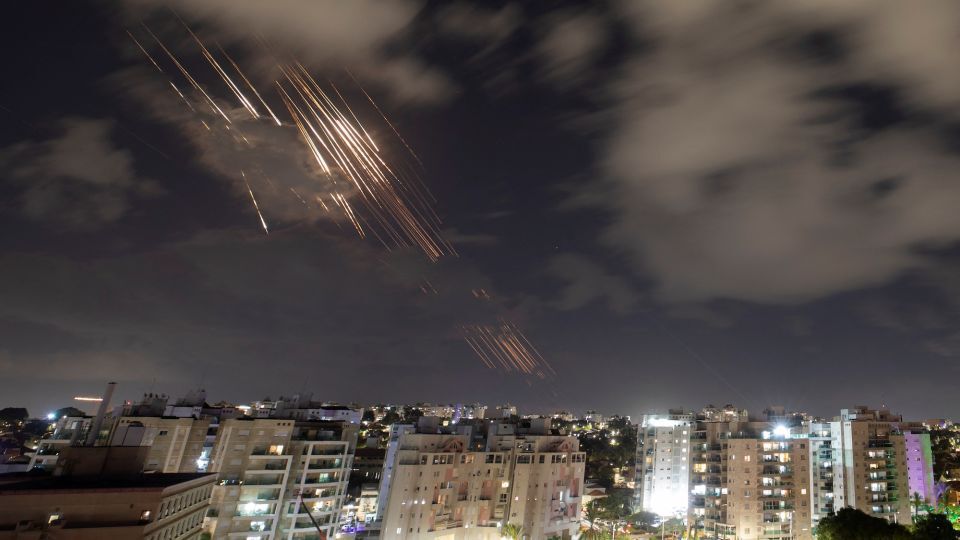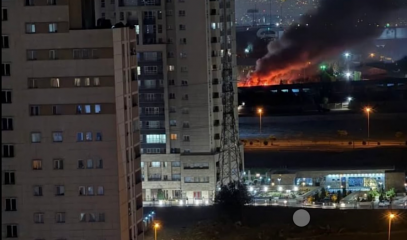Tehran Cardinal calls for Iran - Israel talks; "pre-emptive strikes” will not bring peace
The Archbishop of Tehran-Isfahan of the Latins tells AsiaNews of his concern over the escalation in recent hours. The cardinal, who participated in the conclave that elected Pope Francis, was appointed by the Pope precisely to keep alive the Christian “presence” with the task of “integrating, including and being in contact with the nation at its various levels”.
Vatican City (AsiaNews) - ‘It is with regret that we observe in these last few hours, once again, that peace is sought through preventive attacks instead of committing to dialogue around the negotiating table,’ writes Cardinal Dominique Joseph Mathieu, Archbishop of Tehran-Ispahan of the Latins, to AsiaNews.
The prelateìs comments come in the wake of Israel's night-time attack on Iran and Tehran's subsequent response. The Jewish state claims to have struck Iranian nuclear sites, as well as leading military and scientific figures, including the head of the Revolutionary Guards, Hossein Salami, as part of Operation Rising Lion.
Tehran responded by launching a hundred drones against the Jewish state. ‘We pray,’ the cardinal continued, "that peace through dialogue based on a consensus will prevail. May the Holy Spirit guide this process," as negotiations in Oman between the United States and Iran for a nuclear agreement appear to be faltering. This morning, in fact, Tehran announced that it will not participate in the sixth round of talks.
Cardinal Mathieu is deeply concerned at this time of great regional and global tension, because the much-feared escalation that risks dragging the entire Middle East into a devastating conflict seems to be materialising.
AsiaNews recently met with the Latin Archbishop of Tehran-Isfahan in Rome, after the election of the new pontiff, the first archbishop of the Iranian capital to participate in the Conclave.
Speaking of ‘the cross and hope,’ the cardinal emphasised the two distinctive traits of the Christian community in Iran, which had a ‘strong bond’ with Pope Francis, whose death was ‘a profound sorrow’ and which today looks with confidence to his successor, Leo XIV.
‘Among Iranian Catholics,’ he continued, ‘there is great hope, combined with incredible anticipation.’ The current Jubilee Year is also being lived in this perspective, ‘which is why we can say that we are full of hope.’
Official estimates report that in Iran there are about 22,000 Catholics (about 500,000 Christians) out of a total of almost 84 million inhabitants, the vast majority of whom are Shiite Muslims (90%, Sunnis are just over 5%). Among the various Churches there are Chaldeans, Armenians and communities of Latin rite, which are add to Europeans and Latin Americans.
According to the Iranian Constitution (art. 13) Christians, Zoroastrians and Jews are free to worship "with respect" for the laws inspired by the Muslim faith; furthermore, Christians have the right to have representatives in Parliament (Majlis).
Cardinal Mathieu recalls the importance of Pope Francis' pontificate, including in relations with the Muslim world and the Iranian authorities, describing him as the pontiff who ‘opened many doors’ and now ‘the time has come to organise the space behind these doors’.
His successor, Leo XIV, he continues, has ‘this task’ and from the experience of the Conclave and in moments of confrontation and discussion - even previously, in the Congregations - Pope Prevost seems to possess these characteristics. ‘In the election,’ says the cardinal, ‘the Holy Spirit guided us on the right path, because he may be the person capable of doing so.’
The theme of the door, together with that of prayer, recurs frequently in the thoughts of the Archbishop of Tehran-Ispahan, symbol of a reality rich in contradictions where it is not always easy to profess one's faith or cross the threshold of a church.
‘What Iranian Catholics expect from the pope,’ he explains, ‘is that he be a man of prayer’ and that he know how to ‘devote time to them.’
The reality of the country shows that ‘many things cannot be resolved in the future except through prayer,’ especially in such a dramatic phase, in which the logic of arms seems to prevail over dialogue, as invoked first by Francis and now by Pope Leo XIV.
At a time of difficulty and uncertainty for the future of the Christian community in Iran, the cardinal reflects on the decision to appoint him head of the archdiocese of the capital and then elevate him to the rank of cardinal.
‘An attempt at inclusion,’ he explains, ‘even broader, “ad extra”, which Pope Francis himself had expressed last November when he met a delegation of [Shiite Muslim] religious leaders from Qom’ for a symposium on interreligious dialogue.
‘To them,’ Cardinal Mathieu recalled, ‘I said that I had sent a “good friar” who was not against the country but whose task was precisely to integrate, include, and be in contact with the nation at its various levels... an expression of the spirit of the synodal process.’
Mathieu continued that he had told them he had sent a “good brother” who was not against the country but whose task was precisely to integrate, include and be in contact with the nation at its various levels... an expression of open doors to the outside world!’ Because even if a door is closed, it does not mean that ‘there is no one behind it. On the contrary, there are people who maintain a link with those outside, who cannot enter but pray in front of these closed doors.’
Russia, China and Iran are places that a pope, for various reasons, has not yet been able to visit, he concludes, but “what remains is the desire to reach out, to preserve what is positive in our relationship with people” regardless of their faith and “recognising the richness of a culture” in a perspective of peace.








.png)










